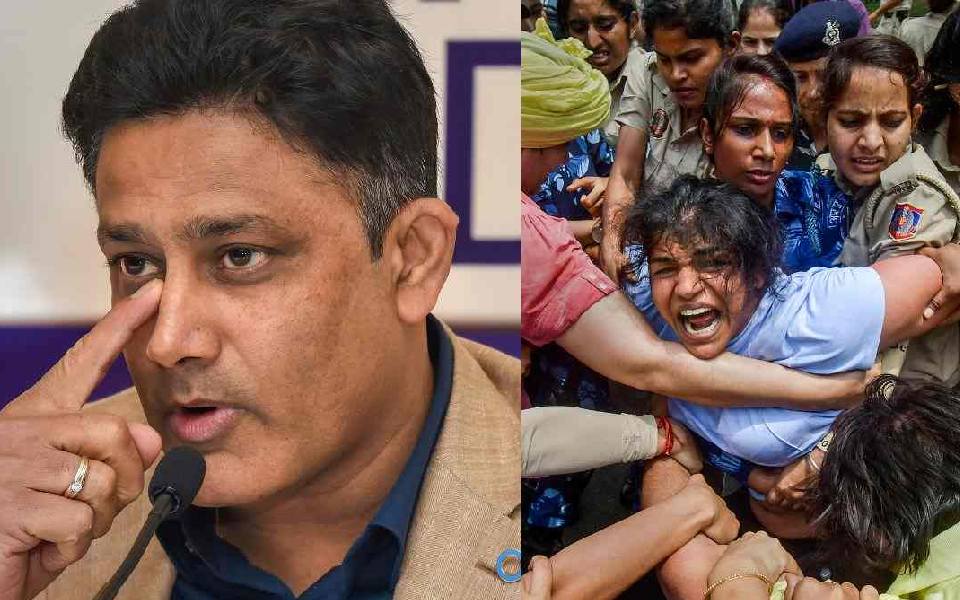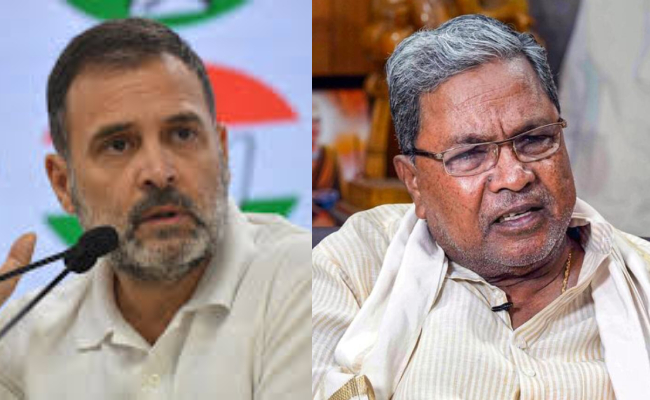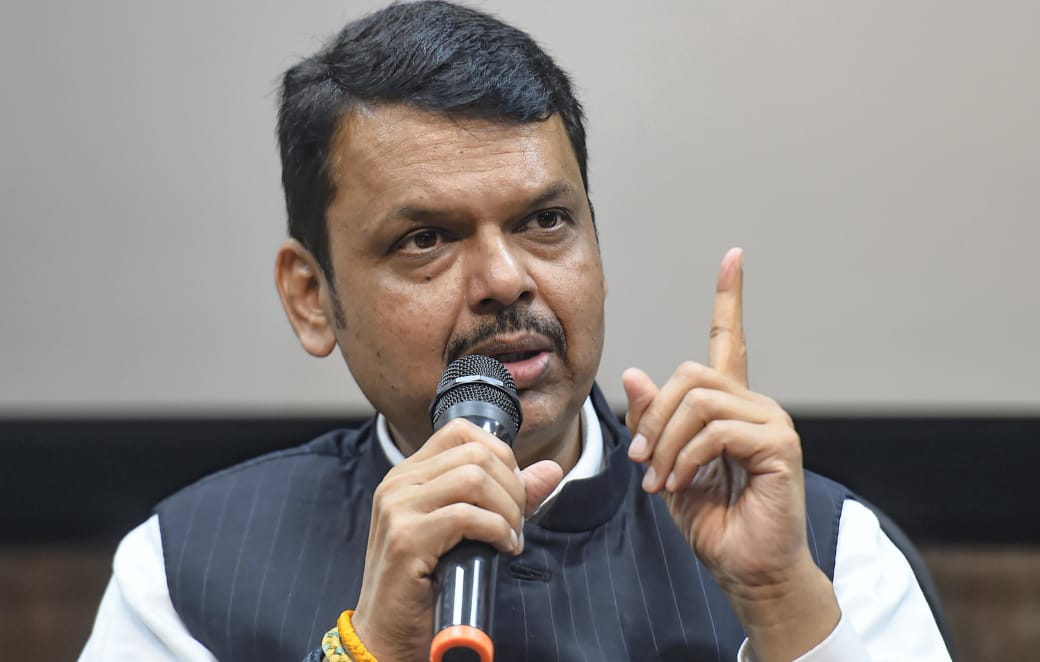New Delhi, May 30: The legendary Anil Kumble on Tuesday said he is "dismayed" by the treatment meted out to the protesting wrestlers at Jantar Mantar where they were manhandled and detained by police for trying to march towards the new Parliament building and hold a 'Mahila Mahapanchayat'.
Unprecedented scenes of police dragging Olympic and world championships medallists, including Sakshi Malik, Vinesh Phogat and Bajrang Punia, were witnessed on Sunday when the wrestlers and their supporters breached the security cordon during their march to protest the inaction against outgoing WFI chief Brij Bhushan Sharan Singh for his alleged sexual harassment of women grapplers.
The wrestlers had called for a 'Mahila Mahapanchayat' at the new Parliament building at a time when it was being inaugurated by Prime Minister Narendra Modi.
They tried to march towards the new Parliament building despite the Delhi Police not giving them the permission to do so, resulting in their detention.
Leg-spinner Kumble, 52, felt the issue could have been resolved through dialogue.
"Dismayed to hear about what transpired on the 28th of May with our wrestlers being manhandled. Anything can be resolved through proper dialogue. Hoping for a resolution at the earliest," tweeted Kumble, the fourth-highest wicket-taker in Test cricket, on Tuesday.
Olympic champion shooter Abhinav Bindra, Indian football captain Sunil Chhetri and former India all-rounder Irfan Pathan too had expressed solidarity with the grapplers on Monday.
On Tuesday, the wrestlers along with hundreds of their supporters reached Haridwar to immerse the medals won on the world stage, including the Olympics, in the Ganga river but were persuaded by the khaps and farmer leaders to wait for a few more days to address their grievances.
Dismayed to hear about what transpired on the 28th of May with our wrestlers being manhandled. Anything can be resolved through proper dialogue. Hoping for a resolution at the earliest.
— Anil Kumble (@anilkumble1074) May 30, 2023
Let the Truth be known. If you read VB and like VB, please be a VB Supporter and Help us deliver the Truth to one and all.
New Delhi: Senior Congress leader and Leader of Opposition Rahul Gandhi has reportedly expressed his unhappiness with Karnataka Chief Minister Siddaramaiah over his handling of the alleged honey trap controversy.
According to a report in Deccan Herald, when Siddaramaiah met Rahul in New Delhi this week, the Congress leader conveyed his displeasure over the matter being raised in the Assembly. Gandhi is said to have told the Chief Minister that the issue should not have been brought up on the Assembly floor, as discussions in the House are on record and can cause embarrassment to the party.
Sources cited by DH reveal that Rahul Gandhi advised Siddaramaiah to have handled the situation more diplomatically to avoid making it a subject of public discourse. However, the CM reportedly defended his actions, clarifying that Co-operation Minister K.N. Rajanna had not raised the matter in the Assembly on his own. Siddaramaiah explained that when two BJP members brought up the issue and mentioned Rajanna's name, the minister was simply providing a clarification, and it was not an intentional move to drag the issue into the legislative proceedings.
The controversy had also reached Congress President Mallikarjuna Kharge, who, during a meeting with Siddaramaiah in Bengaluru, conveyed that party leaders in Delhi were not pleased with the issue being debated in the floor of the House. Despite these developments, Siddaramaiah refused to comment on his discussions with Rahul Gandhi.





